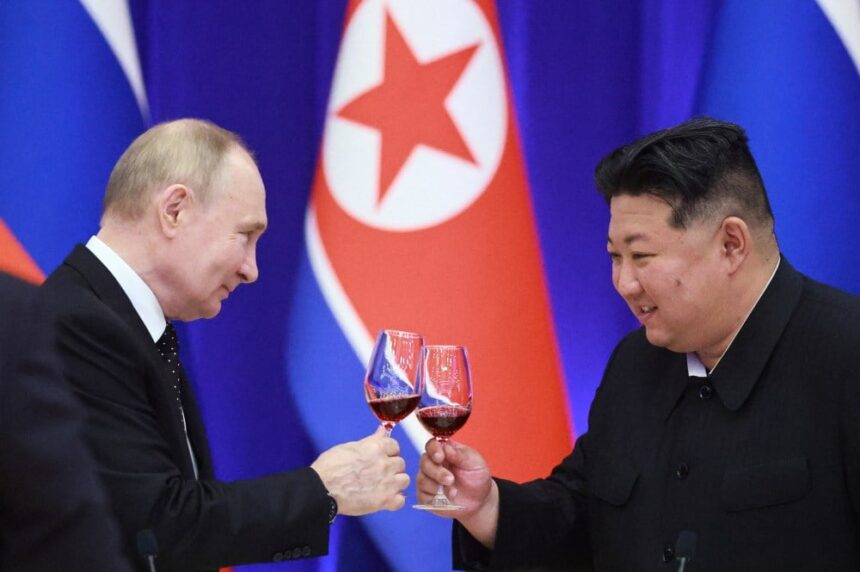Anne Applebaum’s book Autocracy, Inc.: The Dictators Who Want to Run the World explores the rise of contemporary authoritarianism and the intricate networks that sustain it globally. Applebaum, a prominent historian and analyst of Soviet repression, dissects modern autocracies, highlighting how they differ from their Cold War predecessors. Unlike past dictatorships with ideological missions, today’s autocrats prioritize power and wealth, relying on sophisticated networks that extend beyond borders.
The book examines how these regimes collaborate with corrupt enablers in the West, using financial, military, and technological means to maintain control and undermine democracy. Applebaum criticizes Western democracies for their past mistakes, such as the belief that trade with Russia and China would lead to peace, and warns of the creeping authoritarianism now infiltrating even democratic societies.
Applebaum argues that democracies must counter these authoritarian networks by forming alliances, including collaborations among journalists, lawyers, and military organizations. While her recommendations are sound, they lack detailed strategies for implementation. Nevertheless, Autocracy, Inc. serves as a crucial guide to understanding and combating the global spread of authoritarianism.
Read more below.
The Anti-Authoritarian Handbook: Foreign Policy
On May 28, the republic of Georgia was thrown into uproar when its parliament, overriding a presidential veto, passed a controversial new law requiring media and nongovernmental organizations that get more than 20 percent of their funding from abroad to register as “agents of foreign influence.”
That the government of Georgia—a democracy seeking NATO and EU membership with a public that is among the region’s most pro-Western—would take such a step might seem mystifying. But for the tens of thousands of protesters who took to the streets, there was no mystery at all. The explanation was obvious from the derisive name they gave to the new legislation: “Russian law.”
Members of Georgia’s democratic opposition know why their country—despite having been invaded by Russia in 2008—is now creeping back into Moscow’s orbit: Since 2012, its politics have been dominated by Bidzina Ivanishvili, an oligarch who made billions of dollars in Russia and then, since returning home, has steadily steered his country back into the arms of Russian President Vladimir Putin.
Those hoping to better understand such stories—as well as the larger decline of democracy and the authoritarian onslaught around the world—now have a sharp new guidebook to help them: Anne Applebaum’s Autocracy, Inc.: The Dictators Who Want to Run the World.
A protester holds a sign depicting Putin and Georgian businessman and former Prime Minister Bidzina Ivanishvili during a demonstration in Tbilisi, Georgia, on April 16. Vano Shlamov/AFP via Getty Images
It’s a book she’s well-positioned to write. Over the years, as a columnist at the Washington Post and now a staff writer at the Atlantic, Applebaum has become a leading historian of Soviet repression and a preeminent analyst of its modern successors.
Autocracy, Inc., is a small book with a big mission: to describe and dissect the global business of contemporary authoritarianism. Today’s autocracies, she writes, bear little resemblance to the old-fashioned cartoon of a lone, gray-faced tyrant sitting atop a repressive regime (mainly made up of thugs with guns). “Nowadays,” she writes, “autocracies are run not by one bad guy but by sophisticated networks.” The guys with guns—the police, the military, and the intelligence forces—are still there. But so are “kleptocratic financial structures… and technological experts who provide surveillance, propaganda, and disinformation.”
Applebaum argues that today’s autocrats can be distinguished from their predecessors—think the communist tyrants of the Cold War—by two key traits. First, unlike the communists, they lack any overarching ideology. In place of global revolution or the dictatorship of the masses, their prime objectives are now the accumulation and preservation of power—and their own enrichment. This theory helps explain otherwise incoherent paradoxes like contemporary China’s socialist capitalism or the “Bolivarian revolution” of Hugo Chávez and Nicolás Maduro in Venezuela.
In Applebaum’s view, the second hallmark of modern autocrats is their networks, both at home and abroad. To a degree never seen before, most contemporary dictators rely on fantastically intricate webs of connections with like-minded supporters, other leaders, and cynical or corrupt enablers in the West, all “cemented not through ideals but through deals.”
These deals—financial, military, diplomatic, and more—have spawned myriad forms of cross-border collaboration, which make modern autocrats fiendishly hard to fully understand, let alone fight. Today, a pro-democracy activist in Zimbabwe, say, must grapple not only with her own repressive rulers (who are often funded and armed by Moscow or Beijing), but also with Chinese surveillance technology and smear campaigns churned out by Russian bots. Syrian rebels must fight not only their own government but Iran’s proxy militias. Sudanese civilians face Emirati guns and Turkish drones.
Not even Americans are immune to the global reach of Autocracy, Inc. In one anecdote, Applebaum tells the story of steelworkers in Warren, Ohio, who lost their jobs after a Putin-linked oligarch bought and gutted their local mill in a complex money-laundering scheme.
These activists, rebels, civilians, and steelworkers are all victims of what Applebaum calls “an ironic, inverse version of globalization,” in which tyrants share tools and tactics while defending and propagandizing for one another and enjoying the support of avaricious middlemen from “North America, southern Africa, Britain, and the United Arab Emirates,” among other places, who help the dictators distort the truth, evade sanctions, and hide their ill-gotten loot.
As such passages suggest, while Applebaum primarily faults the autocrats themselves, she finds plenty more blame to go around. In short vignettes, she recounts how the West’s enabling of Russian corruption—and behind it, Russian economic power—goes all the way back to 1967, when the Europeans first started working with the Soviets to build a pipeline that would ship western Russia’s vast, newly discovered supplies of natural gas.
Applebaum is scathing in her description of how democratic countries, especially Germany, fooled themselves into thinking that economic cooperation would bind the Cold War adversaries together, making war impossible—or at least more expensive. And she’s equally scornful of the Westerners who, starting in the 1990s, came to believe that trade with China “would also bring harmony to the Pacific by integrating China into the democratic world.”
A U.S. Secret Service agent stands beside a man wearing a Chinese warrior costume during an Obama-administration-era visit to Xian, China, on March 24, 2014. Feng Li/Getty Images
The problem in both cases, Applebaum argues, is that Western leaders overlooked how dependent such trade would make them—a truth they’d only appreciate decades later, when Putin started using gas supplies to extort Europe into acquiescing to his expansionism, or Washington began struggling to “decouple” or “de-risk” its massive trade links with China. By that point, however, it was almost too late to remedy—or not without paying a very high price. In 2021, Europe imported 45 percent of its natural gas from Russia; that same year, U.S.-China trade totaled around $657 billion.
In Applebaum’s telling, Western optimists made another, subtler mistake as well: While focusing on the influence their democracies would have on the autocracies’ internal politics, they overlooked the influence their adversaries would have on them. “Despite all the debate about the economic impact that open borders might have on Western markets,” she writes, “almost no one spoke about the political impact on Western democracies.”
Today, however, signs of that impact surround us. Not only must Washington and its allies deal with the hard power of Russia, China, and their allies—states such as Iran, North Korea, Syria, and Venezuela—but the democratic world is also struggling to contend with more insidious forms of influence.
Consider, for example, the corruption enabled by lax Western banking, real estate, and corporate law, which allow massive waves of illicit cash to slosh through and distort U.S. and European markets. Or look at the “autocratic information operations [that] exaggerate the divisions and anger that are normal in politics. They pay or promote the most extreme voices, hoping to make them more extreme and perhaps more violent; they hope to encourage people to question the state, to doubt authority, and eventually to question democracy itself.”
Then there’s the slow evisceration of the liberal international order, as China and its allies steadily work through the United Nations and other bodies to replace the language of human rights with terms such as “sovereignty” and “win-win cooperation.” In 2018, for example, Beijing managed to convince the U.N. Human Rights Council to pass a resolution effectively subordinating individual human rights to collective goods such as “development” and state “sovereignty.”
U.S. talk show host Tucker Carlson interviews Putin at the Kremlin in Moscow on Feb. 6. Gavril Grigorov/AFP via Getty Images
And then, as the recent example of Georgia shows, there’s the creeping authoritarian tilt in many democracies themselves—a tilt driven by Chinese technology, Russian misinformation, and the fascination many right-wing Westerners feel for Putin’s strongman image and his pose as an anti-woke defender of traditional values. (Cue those videos from February of Tucker Carlson strolling wide-eyed through a Russian grocery store and raving about the low prices.)
So what’s a democracy to do? Here, unfortunately, Applebaum’s answers are less clear. In the first half of the book, her descriptions of the problem, while powerful, sometimes lack nuance. For example, in discussing the West’s bet that trade would moderate Russia and China, she implies that the democratic leaders involved were naïve at best or corrupt at worst. That’s unfair. The gamble they took may seem foolish in retrospect, but things looked very different at the time. Searching for ways to stabilize relations with Moscow and Beijing wasn’t irrational—even if the methods chosen eventually backfired.
If this part of the book lacks subtlety, however, the recommendations at the end of the book have too much of it. Suggestions that, for example, we make social media platforms harder to game would benefit from greater detail, where the devil that dooms policymaking always resides—especially if this book is meant, as the marketing materials suggest, to parallel George Kennan’s famous Long Telegram, the 1946 document that first laid out what would become the grand anti-Soviet strategy of containment.
Applebaum is correct that we’re not in a new Cold War; there are no blocs to join, and many countries—such as the United Arab Emirates, Hungary, India, Singapore, or Turkey—don’t fall neatly into either camp. Instead of thinking about competition with specific states, she argues, the free world should therefore focus on fighting “autocratic behaviors.”
But how? The answer, Applebaum argues, is for the West to build its own networks to counter the tyrants’. That means, among other things, coalitions of journalists and lawyers to document corruption; new types of collaboration among militaries and intelligence organizations; “economic warriors” to track sanctions and prevent their evasion; netizens trained to counter online propaganda; and legal changes that stymie kleptocracy by closing the many loopholes in the West.
This is all dead-on, if not exactly groundbreaking. (Networks of journalists already exist, for example, and my Bush Institute colleagues Albert Torres and Jessica Ludwig have written up recommendations for damming the transnational flow of corrupt cash.) The hardest part isn’t figuring out what to do, but how to overcome the inertia and special interests that have, so far, prevented it from happening.
Here, Applebaum could have provided a clearer roadmap. Even so, Autocracy, Inc., remains a hugely useful guide to the secretive scheming and insidious collaboration among repressive regimes. It sheds light on a problem that thrives in darkness and should help rally the troops for the defining battle of our age.
By Jonathan Tepperman
Source: Foreign Policy












